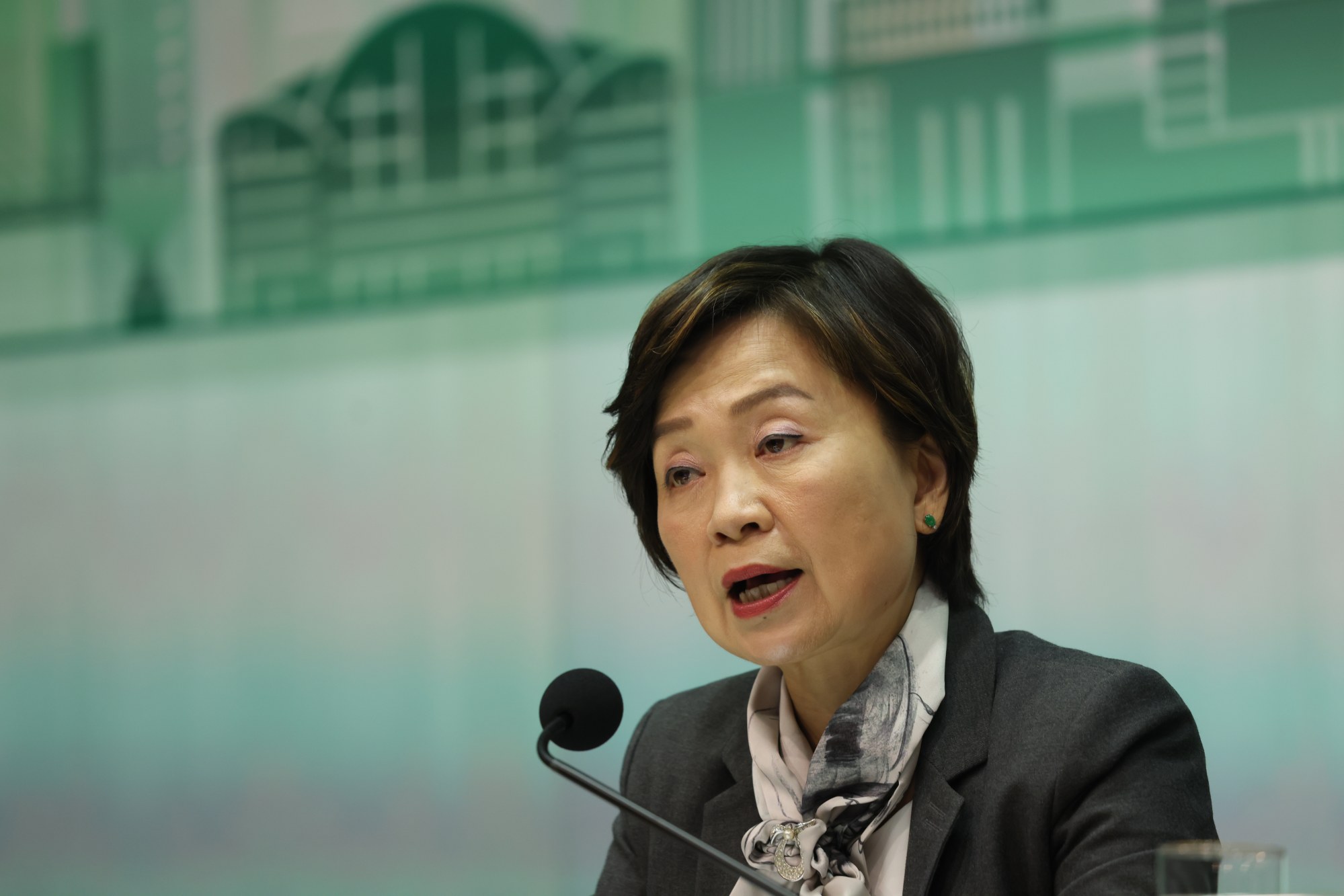
Hong Kong education chief says changes to primary school curriculum not setting up national education as independent subject
- Education secretary Christine Choi rejects suggestions changes to curriculum for primary schools introduces national education as separate subject
- Choi insists new humanities course is not designed to make national education separate subject
A Hong Kong minister has dismissed as a “total misunderstanding” suggestions that a proposed course designed to boost patriotism among primary school pupils is tantamount to making national education a stand-alone subject.
Secretary for Education Christine Choi Yuk-lin said on Friday that the plan to replace general studies in primary schools with two subjects – humanities and science – from the 2025-26 academic year was an improvement to the syllabus and included the injection of more elements related to the country.
She maintained the new curriculum was largely based on the existing one and not a major change.
“There is no such independent subject [for national education] … we are now enriching [general studies] with national history, culture and geography,” Choi insisted.

She was responding to questions on the changes at a media briefing to discuss the policy address proposals for education.
The administration was forced to shelve a plan to teach national education as a separate subject in 2012 after demonstrators, including parents, pupils and teachers, mounted a 10-day protest against the proposal at government headquarters.
The launch of the new curriculum was listed under the patriotic education heading in Chief Executive John Lee Ka-chiu’s policy address on Wednesday.
Choi said the government had implemented national education in a variety of ways, inside and outside the classroom.
She also revealed that the flexible lesson time in primary schools would be reduced after the introduction of the two new subjects, with humanities incorporating the national education element. Choi said an ad hoc committee would be set up to discuss the details.
Hong Kong to replace general studies in primary schools with humanities subject
Schools can designate no more than 25 per cent of lesson time under the Primary Education Curriculum Guide as flexible hours.
The time is used to promote learning activities or to allow pupils to do their homework.
General studies, launched in 1996, can take up not less than 11 per cent of lessons.
Some principals said most schools would arrange four to five lessons a week in the subject.
Choi said there was no consultation on the changes as the Education Bureau “updated and enriched the curriculum from time to time” with national elements.
She said authorities would engage the sector to develop the curriculum framework document and discuss the first draft, which is expected to be completed by the end of the year.
Hong Kong to revise subject for junior secondary pupils to focus on national security
The final version is expected to be ready next year and will be followed by a pilot project on the launch of the new subject.
So Ping-fai, the acting chairman of the Subsidised Primary Schools Council, said most head teachers made use of the flexible lesson time to expose children to different kinds of activities in the afternoon after the guide was released last year.
“I think most of them need to change the timetable and schools may now inevitably need to arrange academic lessons for students after the reduction of the flexible lesson time,” So, a primary school head teacher, said.
Choi also said that the government had no alternative to the closure of schools because of the shrinking population.
She added the government could not maintain the present number of schools because it was a waste of “precious resources”.

